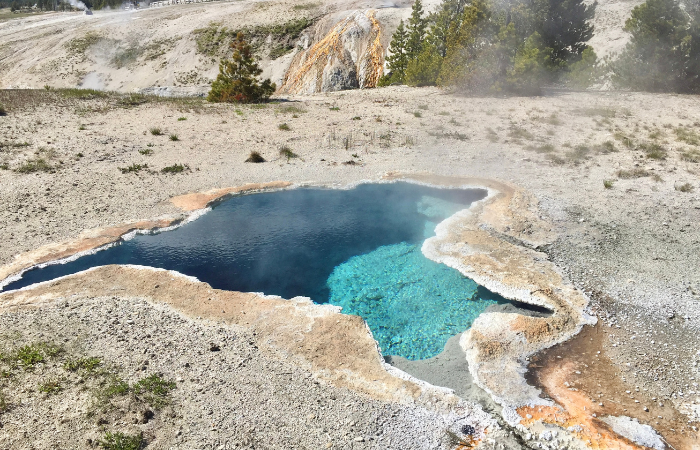The Right Way to Sightsee in Japan

Learn Japanese easily! When you visit Japan, you’ll most certainly do a whole lot of sightseeing. It will be great fun, but there are a few things you need to know first. For example, you’ll need to know basic words for “sightseeing” and “tour bus.” You might not even think about it, but it’s important that you can say, “I’d like to go sightseeing.” And, knowing times will keep you from missing your tour. This Beginner Japanese article is packed with everything you need for enjoyable and educational sightseeing in Japan. Discover how we use the Japanese kankoo to form words from “sightseer” to “tourist” to “tour bus.” As a bonus, you’ll find charts that provide a helpful review of Japanese times: AM, PM, hours, and minutes. This real-world Japanese article contains plenty of example sentences and review information to make your sightseeing in Japan a breeze!
Vocabulary: In this article, you’ll learn the following words and phrases:
kankoo – “sightseeing”
gaido – “tour guide”
yotei – “plans, arrangements, schedules”
iu – “to speak, to say” (V1)
mazu – “first of all, to start with”
Kitakamakura – “Kitakamakura” (name of a place)
Engaku-ji – “Engakuji temple”
Meigetsuin – “Meigetsuin temple”
Kamakura – “Kamakura” (name of a place)
tsuku – “to arrive at, to reach” (V1)
ichi-jikan – “one hour”
goro – “about, around”
chikaku – “near”
Grammar: In this lesson you’ll learn the following words and phrases:
Useful Vocabulary and Phrases
kankoo “sightseeing“
Review the meanings of the following vocabulary words.
- kankoo kyaku – “sightseer, tourist, visitor”
- kankoo basu – “sightseeing coach, tour bus”
- kankoo-chi – “sightseeing area, tourist site”
Kankoo is a noun, but when we attach o suru or suru, it becomes a verb.
kankoo (o) suru ] – “do sightseeing, go sightseeing“
mazu “first of all”
sorekara “and then, after that“
We often use these words to explain procedures.
For Example:
Mazu, kankoo o shimasu. Tsugi ni, ranchi o tabemasu. Sorekara omiyage o kaimasu
“First, we’ll go sightseeing. And we’ll have lunch next. After that, we’ll buy souvenirs.“
goro “about, around“
Time Expression + goro = “around ____ , about ____”
For example:
- roku-ji goro “about 6:00”
- ichi-gatsu goro “around January”
Sample Sentences:
- Mainichi, shichi-ji goro (ni) okimasu. “I get up at around 7:00 every day.”
- Mainichi, juuichi-ji goro (ni) nemasu. “I go to bed at around 11:30 every night.”
Grammar Review:
In this lesson, we are going to review:
- How to tell time
- Verb conjugation: dictionary form Ô –masu form
ku-ji han desu
“It’s 9:30”
I. Time Ò SEE “Nihongo Doojoo: Welcome to Style You” Articles 16 and 17
O’clock (hour):
Time / Japanese
1:00 / ichi-ji
2:00 / ni-ji
3:00 / san-ji
4:00 / yo-ji
5:00 / go-ji
6:00 / roku-ji
7:00 / shichi-ji/nana-ji
8:00 / hachi-ji
9:00 / ku-ji
10:00 / juu-ji
11:00 / juuichi-ji
12:00 / juuini-ji
Minute:
Time / Japanese
:01 / ippun
:02 / ni-fun
:03 / san-pun
:04 / yon-fun
:05 / go-fun
:06 / roppun
:07 / nana-fun
:08 / happun
:09 / kyuu-fun
:10 / juppun
:30 / sanjuppun or han
AM and PM:
Time / Japanese
A.M. / gozen
P.M. / gogo
For Example:
- gozen juu-ji sanjuu sanpun “10:33 AM”
- gogo ku-ji juunana-fun “9:17 PM“
Practice:
Say the following times in Japanese.
- 12:30
- 4:56
- 9:00 PM
- 7:18 AM
- 4:27 PM
Doko de taberu?
Eki no chikaku de tabemasu.
II. Verb Conjugation Ò SEE “Nihongo Doojoo: Style You and Beyond” Articles 19 -22
Class 1 Verbs:
Dictionary form Ò –masu form:Change the final –u to –i masu-Masu form Ò dictionary form:Change the final –i masu to –u
“English” / Dictionary form / -masu form
“to meet” / au / aimasu
“to speak” / hanasu / hanashimasu
“to stand” / tatsu / tachimasu
Class 2 Verbs:
Dictionary form Ò –masu form: Change the final ru to masu
–Masu form Ò dictionary form: Change the final masu to ru“English” / Dictionary form / -masu form
“to eat” / taberu / tabemasu
“to sleep” / neru / nemasu
“to get off” / oriru / orimasu
Class 3 Verbs (irregular):
“English” / Dictionary form / -masu form
“to do” / suru / shimasu
“to come” / kuru / kimasu
Practice:
Fill in the blanks to complete the chart
“English” / Dictionary form / -masu form
“to arrive” / tsuku / ___
“to eat” / ___ / ___
“to go” / ___ / ikimasu
“to go sightseeing” / ___ / kankoo shimasu
“to say” / iu / ___
“to say” (honorific) / ___ / mooshimasu
Change the following informal speech into formal speech:
- Watashi wa ku-ji ni okiru. Ku-ji han ni asagohan o taberu. Juu-ji ni gakkoo ni iku.
Change the following formal speech into informal speech:
- Watashi wa roku-ji goro uchi ni kaerimasu. Shiji-ji kara hachiji made benkyoo o shimasu. Hachi-ji kara terebi o mimasu.







